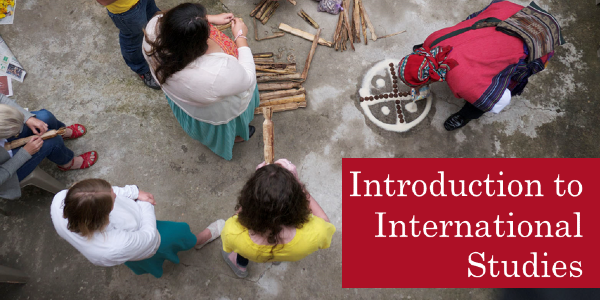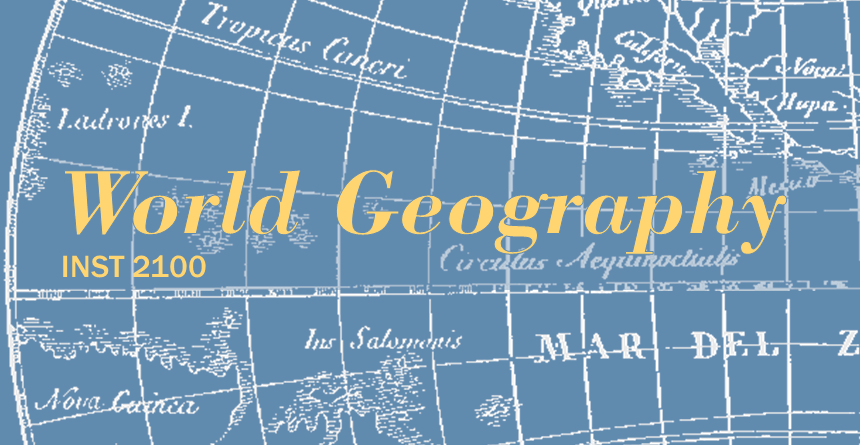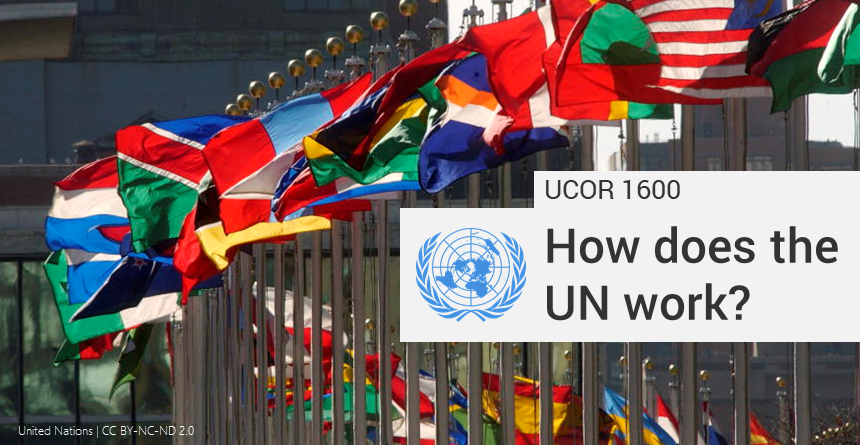
Diversity, Equity, & Inclusion Statement
The International Studies Program embraces diversity in all its forms. We welcome students from all ethnic, national, and racial backgrounds, sexual and gender identities, and religious and cultural traditions. We strive to create a collaborative environment where we learn from one another through respectful dialogue and informed discussion. We value the expertise and knowledge our students have acquired through their lived experiences. We believe our classrooms are made richer by listening to the perspectives of people who are different from us, especially those who come from communities that have been marginalized or oppressed by colonialism and other global processes.
As an interdisciplinary major, International Studies exposes students to a range of ways of learning about other world regions and how the United States is deeply entwined with the world around it. In weaving together different disciplinary traditions--Anthropology, Economics, Geography, History, Political Science, and Sociology--we strive to expand our students’ understanding about how the Global North and the Global South have shaped each other across time.
At Seattle University, International Studies is guided by Jesuit teachings on social justice and empathy for others. Any path to a more equitable future for all people must be attentive to different ways of being and knowing in other world regions. Our goal is to help students develop the inter-cultural awareness and communication skills necessary to thrive in careers that reflect their interests and that contribute to solving the most pressing social justice issues of our time in the United States and around the world.

Putting our DEI commitment into practice
These are a few examples of the ongoing work we're doing:
Introduction to International Studies: To strengthen students abilities to work across difference, International Studies students collaborate with students from one of Seattle University’s partner universities, the Universidad Centroamericana in Managua, Nicaragua. Students from both Universities split into groups to read a book about migration together and then met with the books’ authors to interview them about their findings, methods, and lessons learned. Each group creates recorded presentations about the book, their author interview, and what they learned about each other in the process.
World Geography: In order to facilitate hands-on learning about the environmental challenges confronting leaders in the Global South, International Studies students partner with environmental defenders from around the world—Nicaragua, Colombia, Liberia, Tanzania, and Democratic Republic of Congo. The class assignment requires each student group to respond to leader needs and produce materials or reports for them. Students tutor leaders and their staff in English, prepare reports on key topics, and gather information about funding sources. Working directly with NGO leaders allows students to learn from people around the world as well as helping students strengthen their intercultural abilities.
Research in International Studies: Students learn how to create a research project and gather data on social international and local pressing issues using a questionnaire. They learn how to phrase survey questions that are welcoming and not biased. For example, students learn how to ask about respondents’ gender and race using surveys in a way that is inclusive to different social groups.
How Does the United Nations Work? Through scaffolded course materials and assignments involving research, writing, and role-playing simulations, students learn how the member states of the United Nations work together within the UN system to address pressing global issues related to international peace and security, human rights, and sustainable development. Such experiential learning not only exposes students to the diverse perspectives and priorities among the member states but also allows them to identify the strengths and drawbacks of global governance through the UN system.
Capstone: Senior students reflect on their study abroad experiences in different parts of the world through group presentations. Together, they learn to appreciate how the International Studies curriculum and study abroad enhance their cross-cultural understanding and to appreciate the value of cultural diversity.






